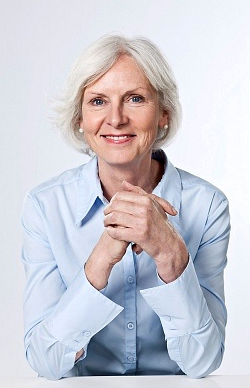 In this brief Q&A session, Marla Ahlgrimm discusses vulvovaginal troubles and touches on the alarming trend of postmenopausal women forgoing care.
In this brief Q&A session, Marla Ahlgrimm discusses vulvovaginal troubles and touches on the alarming trend of postmenopausal women forgoing care.
Q: What types of vaginal issues are common after menopause?
Marla Ahlgrimm: Dryness and irritation are two of the most reported. However, these seem to go hand in hand with other pelvic issues, including vaginal discharge and odor.
Q: Do symptoms such as these impact women’s lives?
Marla Ahlgrimm: Yes! A recent research project jointly conducted by Yale, Dartmouth, and the Connecticut Healthcare System found that over three quarters of the study’s sexually active participants acknowledged vaginal issues as having a negative effect on their sex lives. One third mentioned an overall impact on their lifestyle.
Q: Were these symptoms related to other pelvic conditions?
Marla Ahlgrimm: Nearly half of the women questioned also reported urinary urgency or leakage. This is significant because other studies have suggested vaginal issues and urinary problems were linked; this study adds legitimacy to these previous theories. The North American Menopause Society (NAMS) actually refers to this combination of issues as GSM — genitourinary syndrome of menopause. Other concerning issues reported alongside of these is fecal incontinence and pelvic organ prolapse.
Q: Aren’t most postmenopausal symptoms manageable?
Marla Ahlgrimm: They are, yes; however, according to the study, there is an overwhelming percentage of women who don’t seek medical attention or are not receiving the proper treatment for their issues. 33% of symptomatic women said they hadn’t seen their gynecologist in at least two years. Even worse, 4 out of 5 women who were being treated weren’t prescribed a low-dose estrogen cream, the standard and most effective treatment for GSM. It’s believed that broad HRT warnings on low dose estrogen products ignite unnecessary fears regarding safety. NAMS has requested that the FDA remove this warning in hopes of making the treatment less intimidating to patients and providers alike.













 Marla Ahlgrimm has co-authored two ground-breaking books,
Marla Ahlgrimm has co-authored two ground-breaking books,